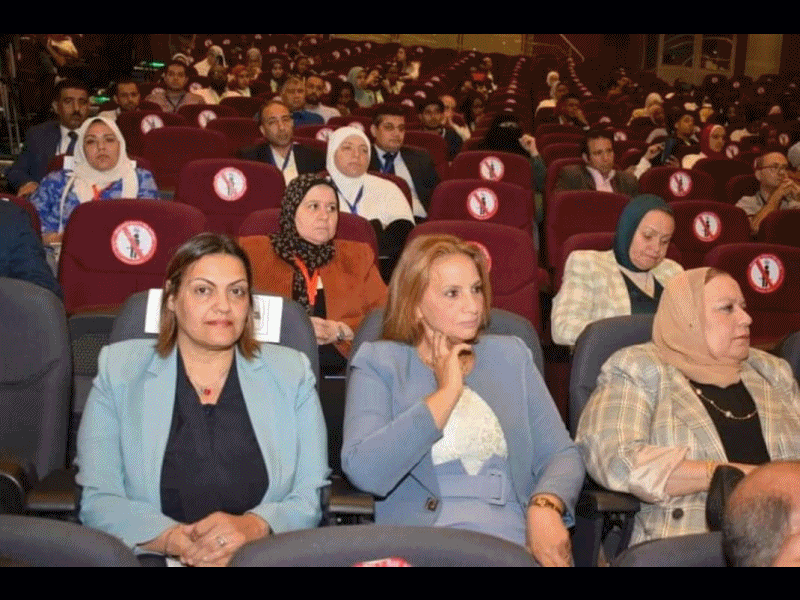By photos... the closing of the international webinar activities "The Impact of Climate Change on Food Production in Dry Areas"
The international webinar, which was organized by the Regional Action Initiative on Climate Change RACC, the International Committee for the Development of Dry Areas (IDDC), and the International Center for Agricultural Research in the Dry Areas (ICARDA), and hosted by Ain Shams University under the chairmanship of Prof. Dr. Mahmoud El-Metini, and supervised by Prof. Muhammad Ayman Saleh, Vice President for Graduate Studies and Research.
Its activities continued for three consecutive days. This international webinar is the largest and most important event in preparation for the Conference of the States Parties COP27, which will be hosted by the Arab Republic of Egypt on the seventh of next November.
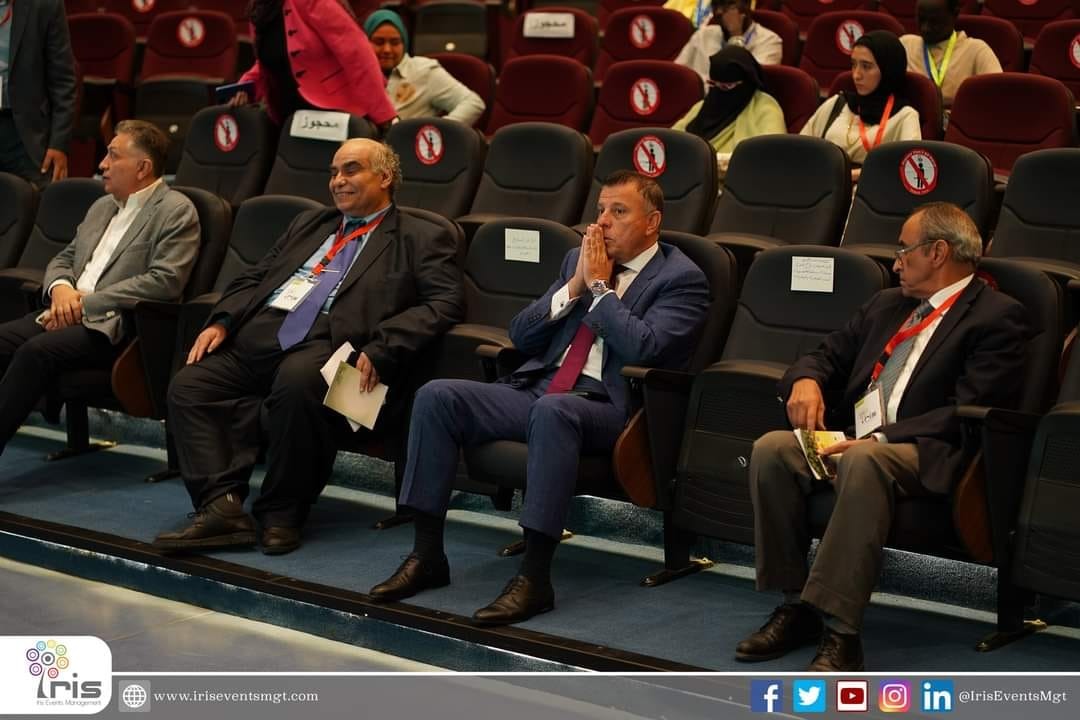 |
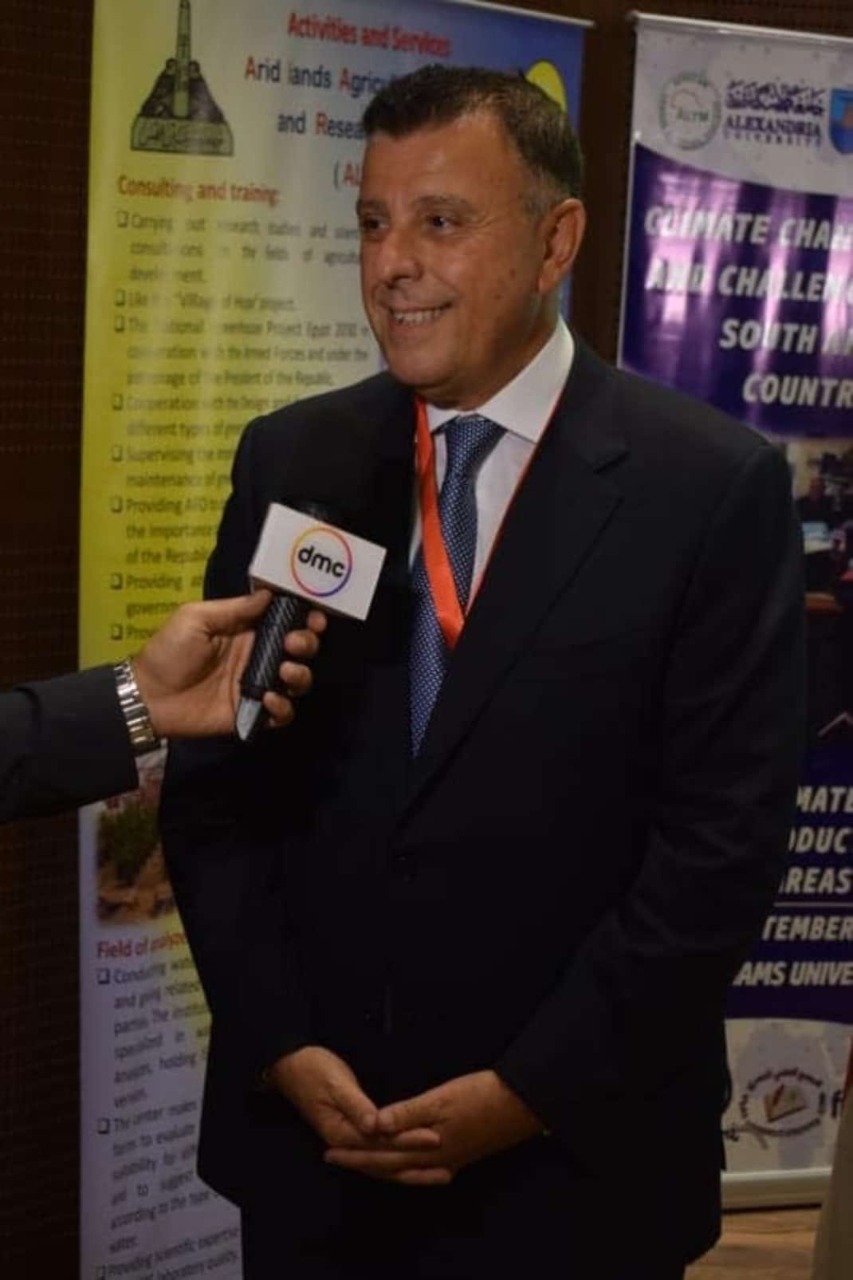 |
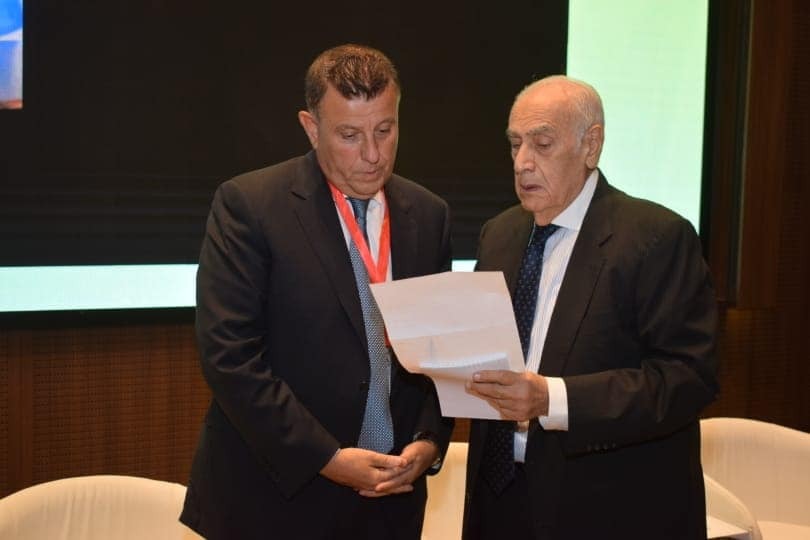 |
||
The webinar was opened by Prof. Dr. Mahmoud El-Matini with a speech on the role of scientific research and universities in participating in the development of plans to confront climate change through adaptation. His Excellency focused on the role of institutions, scientific research and universities in training cadres and using the latest scientific research objectives and employing them in future action plans that serve developing countries Which are located in the dry areas, and his sovereignty focused on international, regional and national cooperation in this regard and on Egypt's aspirations. President Abdel Fattah El-Sisi also mentioned that the next session COP27 Egypt hopes that previous decisions will be turned into actions.
Prof. Dr. Adel El-Beltagy, the former Minister of Agriculture, who chaired the International Organizing Committee for this meeting, stated that the webinar had discussed topics related to the impact of climate change on the various agro-environmental areas, and the need for a dynamic assessment of the impact at the local and regional levels and the direct relationship of those impacts on the livelihood of Local people.
The meeting presented the basic elements of adaptation, namely changing genetic resources that withstand high temperatures, as well as changing agricultural management patterns (irrigation, fertilization, etc.), and the practice of resource management that allows adaptation using the latest scientific outputs, including smart agriculture or modern digital agriculture, in addition to identifying ways and means Necessary to enhance adaptive capabilities in dry areas. This is to enhance the adaptive capacities of dry areas in developing countries
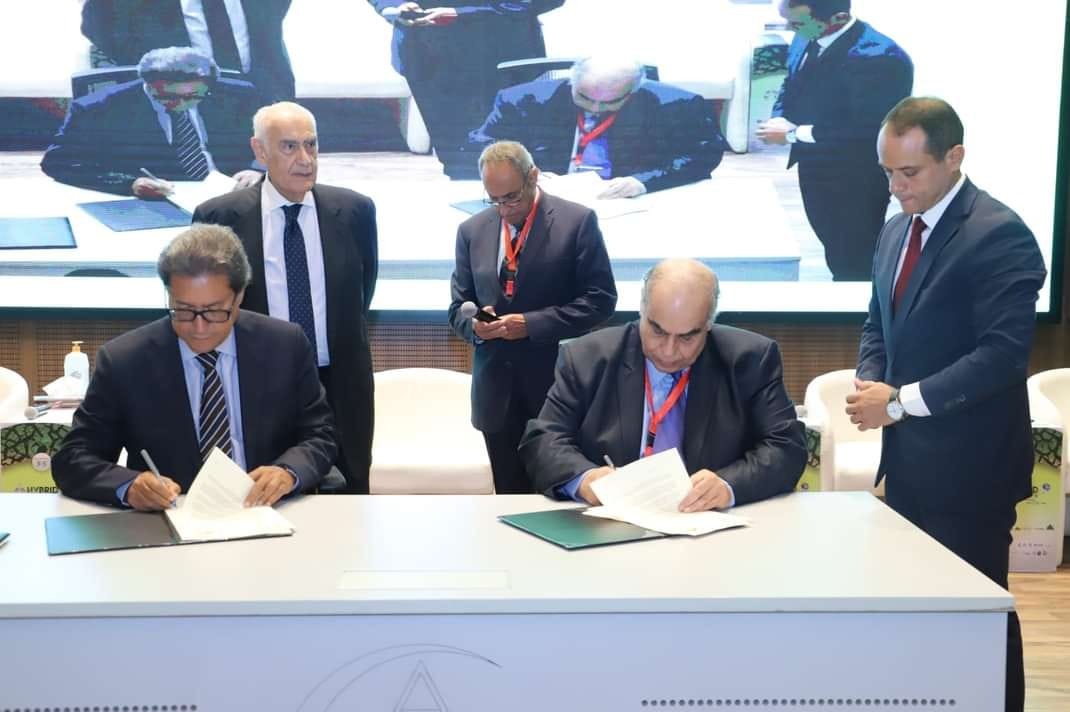 |
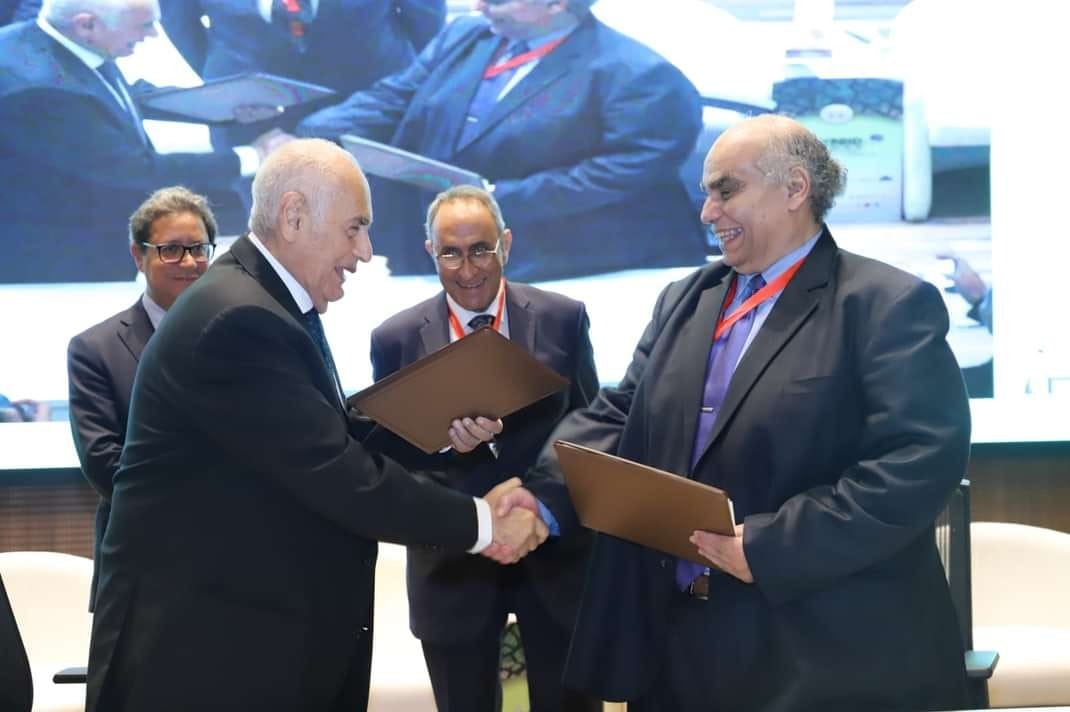 |
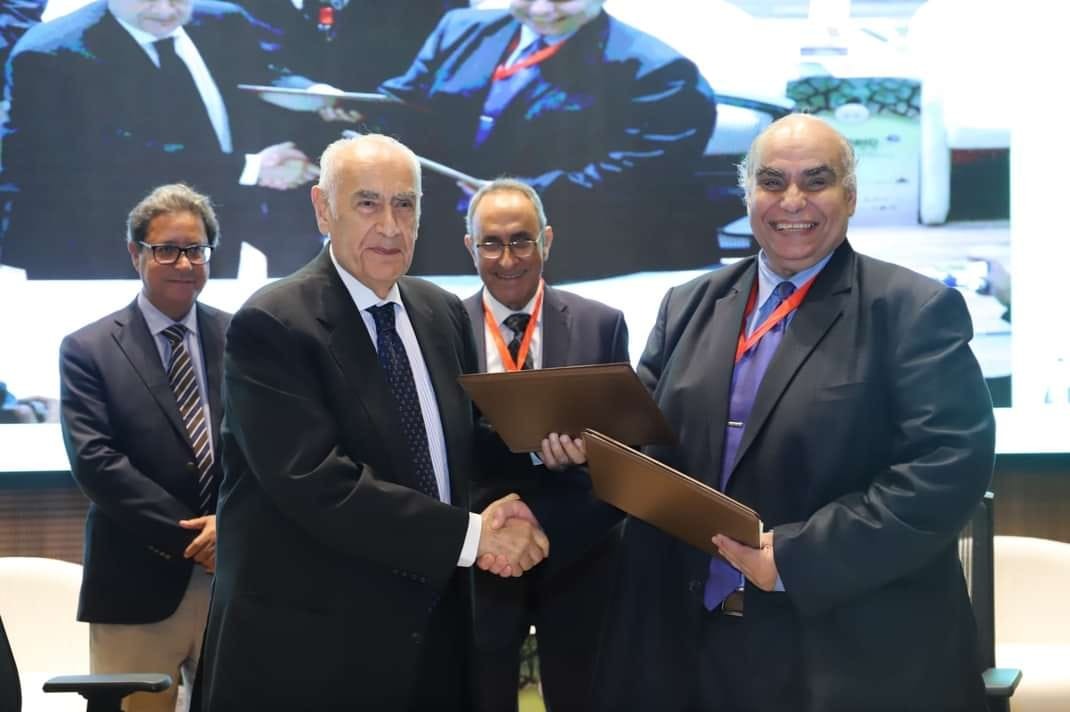 |
||
The webinar focused on the following themes:
1) Dynamic assessment (modeling, simulation, ...) of the impact of climate change on ecosystems in different agro-ecological zones.
2) Evaluation of genetic resources to suit different agricultural environments resulting from climate change.
3) Defining and updating the appropriate agricultural management techniques for different agricultural environments “precision agriculture”.
4) Coping and Adaptive Capacity
4.1 Review of political obstacles to implementing a strategy that would limit global warming to 1.5-2.0°C by 2050.
4.2 Identify approaches to developing resources to assist developing countries in implementing appropriate adaptation measures and enhancing their capacity to adapt to climate change.
Prof. Dr. Ayman Abu Hadid, former Minister of Agriculture and Professor at the Graduate Institute of Arid Regions, chaired the National Organizing Committee for the webinar.
The webinar was supported by a number of international and regional organizations from universities and scientific research centers and international and local civil society, including the Nizami Ganjavi International Center (NGIC) (info@nizamiganjavi-ic.org), the Academy of Scientific Research and Technology (ASRT), Egypt (www.asrt.sci). .eg), Food and Agriculture Organization (FAO), Rome, Italy (www.fao.org), Ministry of Environment, Egypt.
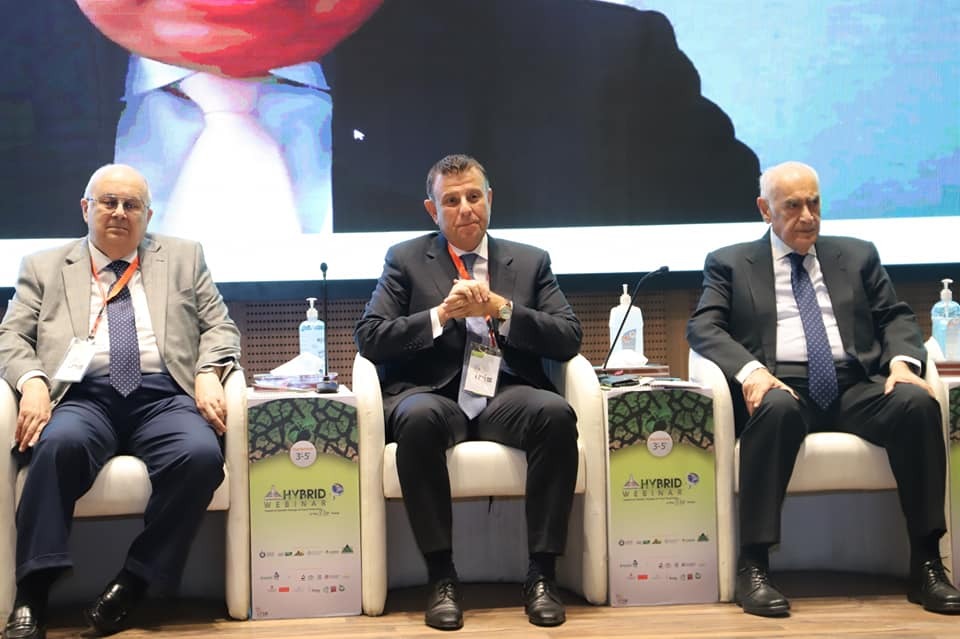 |
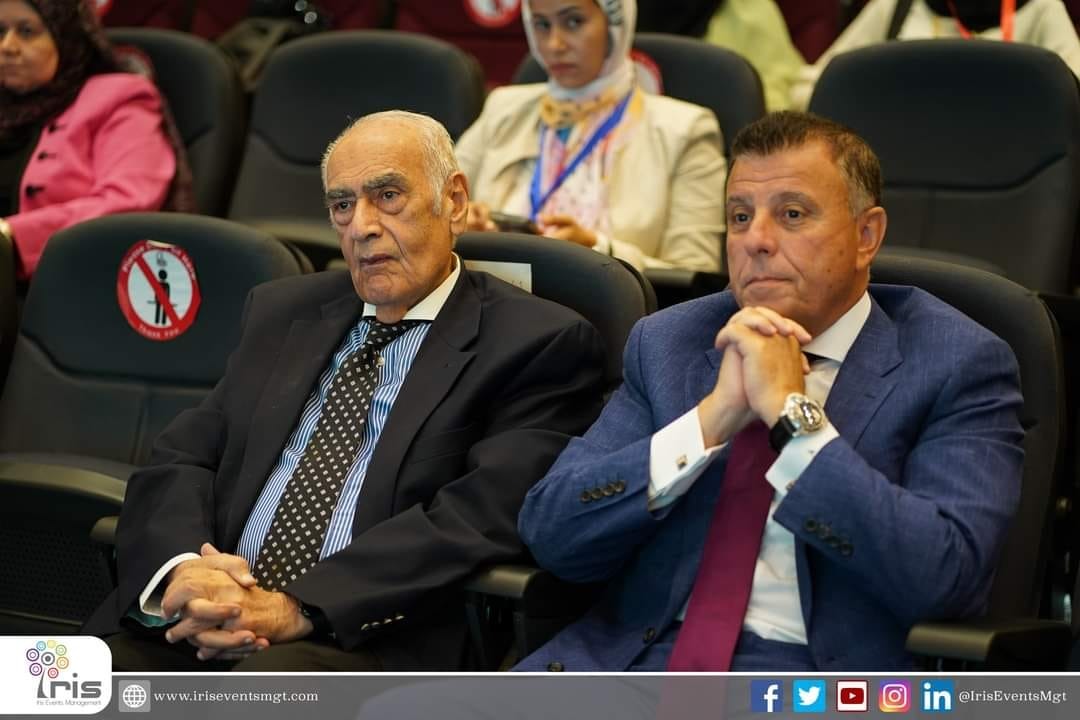 |
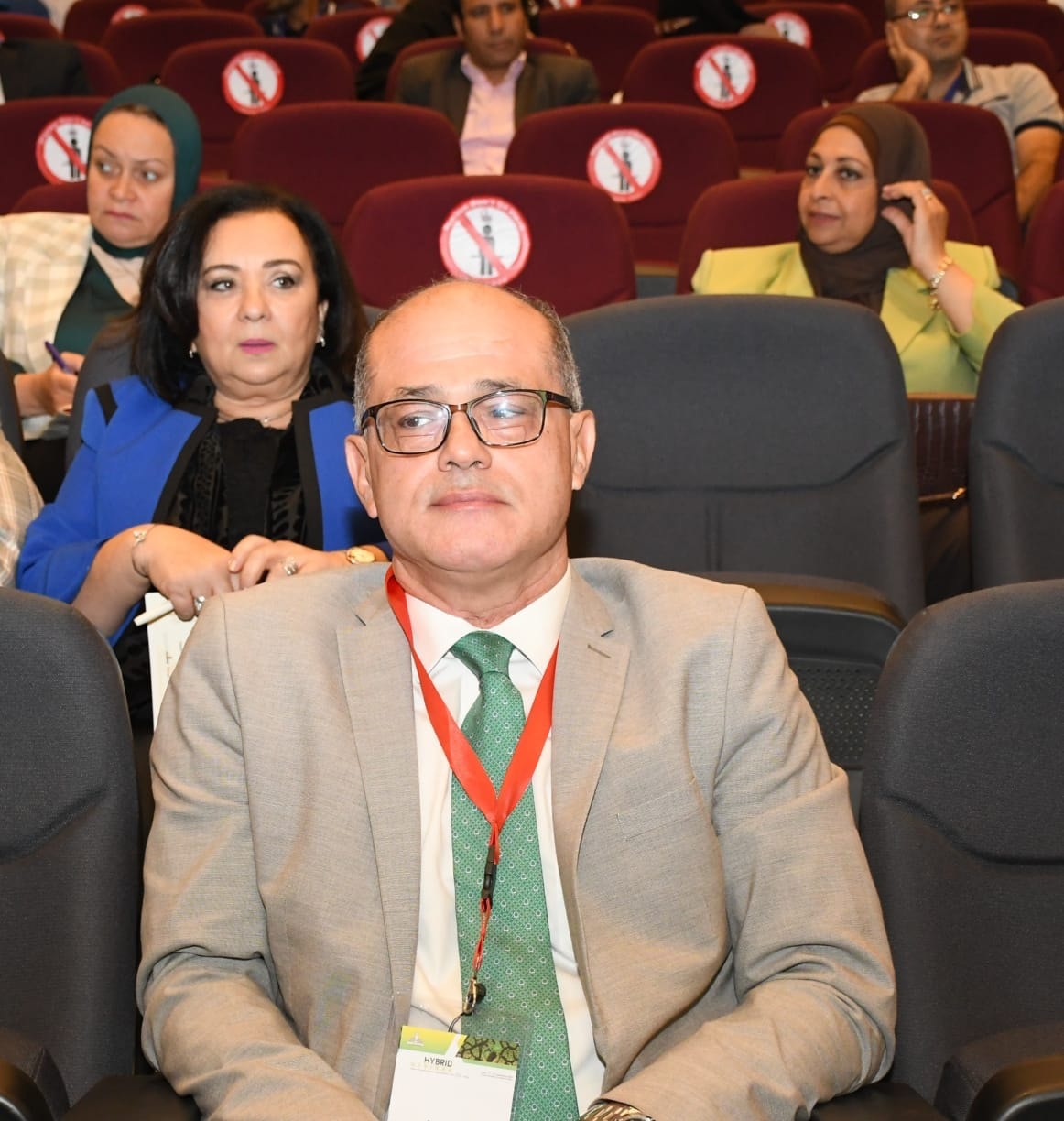 |
||
Dr. Ismail Serageldin, Founding Director of the Bibliotheca Alexandrina, chaired the session, which discussed state policies as well as future financial support in the presence of international public figures, as well as members of the Nizami Janafani International Center, His Excellency Ambassador Amr Moussa, Secretary-General of the League of Arab States (2001-2011), Minister Foreign Affairs, Arab Republic of Egypt (1991-2001), H.E. Jan Fischer, Prime Minister of the Czech Republic (2009-2010), H.E. Mr. Rosen Plevneliev, President of the Republic of Bulgaria (2012-2017), H.E. Eka Tkichilashvili, Prime Minister of Georgia (2010-2012) Her Excellency Mrs. Katerina Yushchenko, First Lady of Ukraine (2005-2010), Her Excellency Zlatko Lagomdjia, Prime Minister of Bosnia and Herzegovina (2001-2002), Deputy Prime Minister of Bosnia and Herzegovina (2012-2015), Her Excellency Mrs. Maria Fernanda Espinosa, 73rd President of the Assembly The General of the United Nations, Her Excellency Mrs. Kolinda Grabar-Kitarović, President of Croatia (2015-2020), Her Excellency Cheryl Gaboriçi, Prime Minister of Moldova (2015), Her Excellency Marie-Louis Koleiro Preca, former President of Malta.
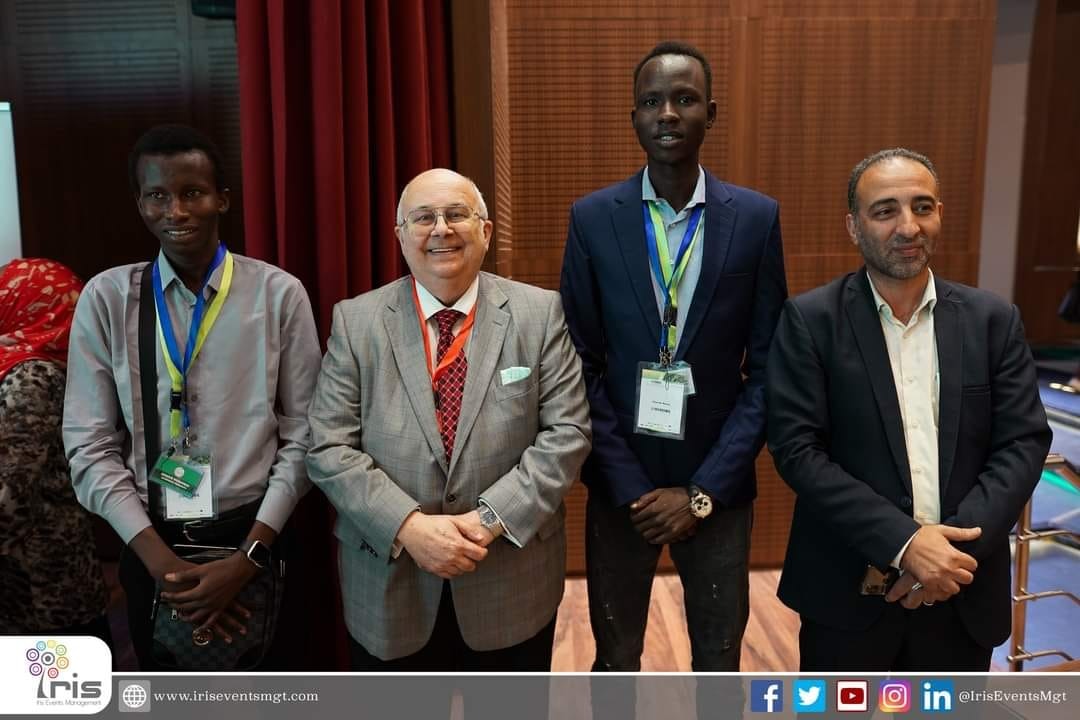 |
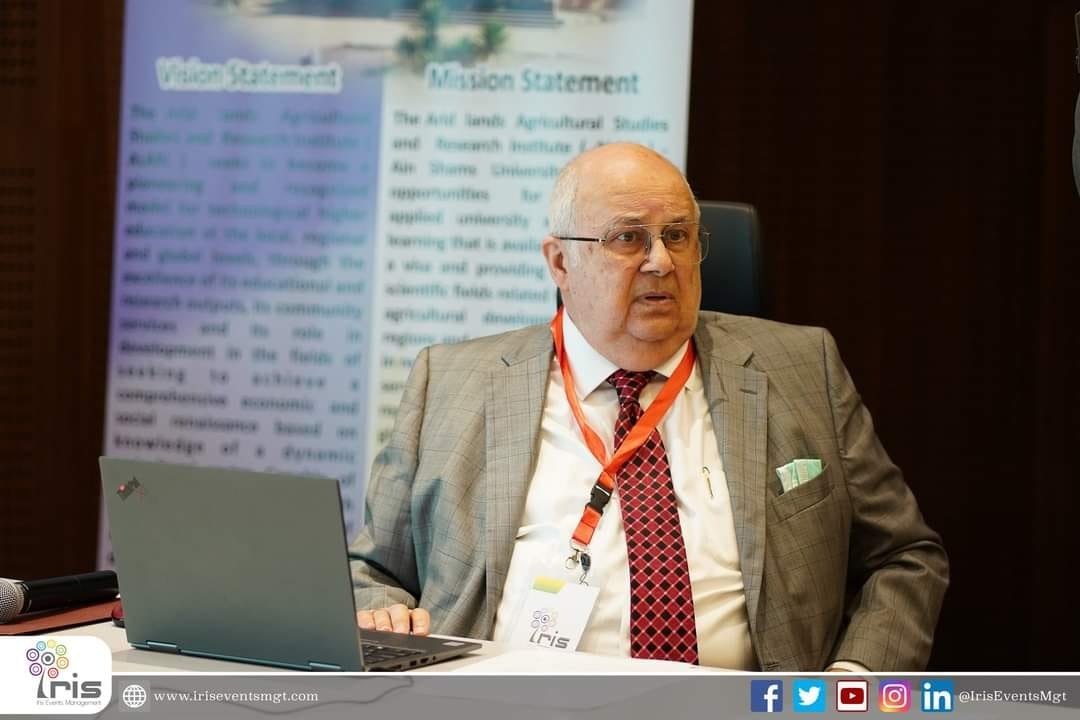 |
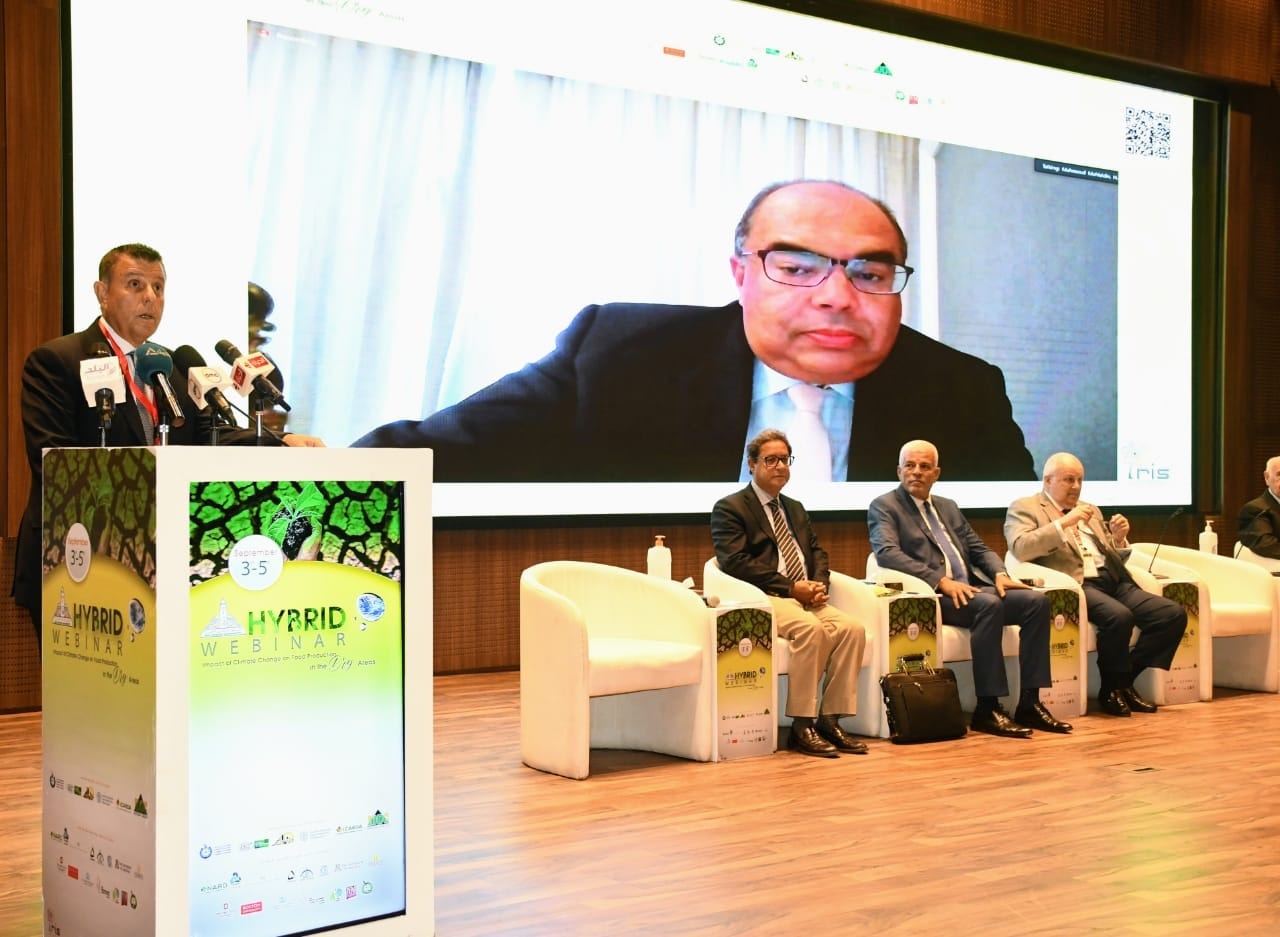 |
||
The conference included a number of various lectures, which amounted to 45 lectures. The conference activities were attended by:
Prof. Dr. Mahmoud Mohieldin, Executive Director of the International Monetary Fund and Climate Pioneer for the Egyptian Presidency of the Conference of Parties to the United Nations Climate Change Conference COP27
Prof. Dr. Jeffrey Sachs, former Director of the Earth Institute, Columbia University, and Senior Adviser to the United Nations for Sustainable Development
Dr. Mahmoud Sakr, President of the Academy of Scientific Research and Technology (ASRT), Egypt
Dr. Adel El-Beltagy, President of the International Drylands Development Commission (IDDC)
Dr. Ismail Serageldin, Founding Director, Bibliotheca Alexandrina
Prof. Dr. Ayman Abu Hadid, former Minister of Agriculture, professor at the Graduate Institute of Arid Regions.
Mr. Aly Abousabaa, Director General of the International Center for Agricultural Research in the Dry Areas (ICARDA)
Dr. Ismahane Elouafi, Senior Scientist, Food and Agriculture Organization, Rome
Dr. R. Baroda, President, Agricultural Science Advancement Fund (TAAS), India
Professor Rattan Lal, University Professor of Soil Science, Director of the CFAES Rattan Lal Center for Carbon Management and Sequestration, President of IICA, International Land Association-Goodwill Ambassador for Sustainable Development Issues, World Food Prize 2020 recipient, Ohio State, USA
Professor Dr. Atsushi Tsunekawa, Arid Land Research Center, ALRC, Tottori University, Japan
Professor Dr. Ronaldo A. Galarza, Dean of the Faculty of Agriculture, Consumer and Environmental Sciences, New Mexico State University, USA
Dr. Donald S. Slack, Emeritus Professor, Biosystems Engineering, Watershed Management, Environmental Hydrology, Civil, Architectural, and Mechanical Engineering, University of Arizona, Tucson, USA
ML Gatt, Principal Scientist/Agrosystems Engineer, Regional Strategy Leader, Sustainable Food Systems Program, Resilient Agrifood Systems Work Area at the Consultative Group on International Agricultural Research, International Center for Maize and Wheat Improvement (CIMMYT), South Asia Regional Office (SARO), Nepal
Dr. Srinivasa Rao, Director, ICAR, National Academy of Agricultural Research Administration Rajendranagar, Hyderabad, India
Dr. Himanshu Pathak, ICAR, National Institute of Biological Stress Management, Paramati, Maharashtra, India
Dr. Toshichika Izumi, National Agricultural and Food Research Organization, Chukuba, Japan, Visiting Professor, ALRC, Tottori, Japan
Vinay Nangia, Head of Research Division - Soils, Water and Agriculture, International Center for Agricultural Research in the Dry Areas (ICARDA), Rabat, Morocco
Dr. Abdul Ghani Muhammad Al-Jundi, College of Desert Agriculture, King Salman University, Ras Sidr, Egypt
Ms. Dina Miriam, Global Initiative for Women's Peace (GPIW) New York, USA
Mr. Dr. Alia Rafe, Faculty of Girls, Ain Shams University, President and Founder of the Human Building Foundation, (Human Foundation) Egypt
Dr. Salah Abdel-Rahman Soliman, Emeritus Professor, Chemistry and Toxicology of Pesticides, Alexandria University, Egypt.
Dr. Abdel Aziz Sheta, former head of the Soil Department, Faculty of Agriculture, Ain Shams University, Egypt.
Dr. Adel Mohamed Abul-Naga, Emeritus Professor, Animal Production Research Institute, Agricultural Research Center, Egypt.
Dr. Mohsen Shoukry, Chairman of the Animal and Fisheries Research Council, Academy of Scientific Research and Technology, Egypt.
Dr. Mohamed Othman, Emeritus Professor, Department of Animal Production, Faculty of Agriculture, Ain Shams University, Egypt.
Dr. Sharon J. Megaris, Psychologist, Professor at New Mexico, California Institute for the Humanities and National University, California, USA.
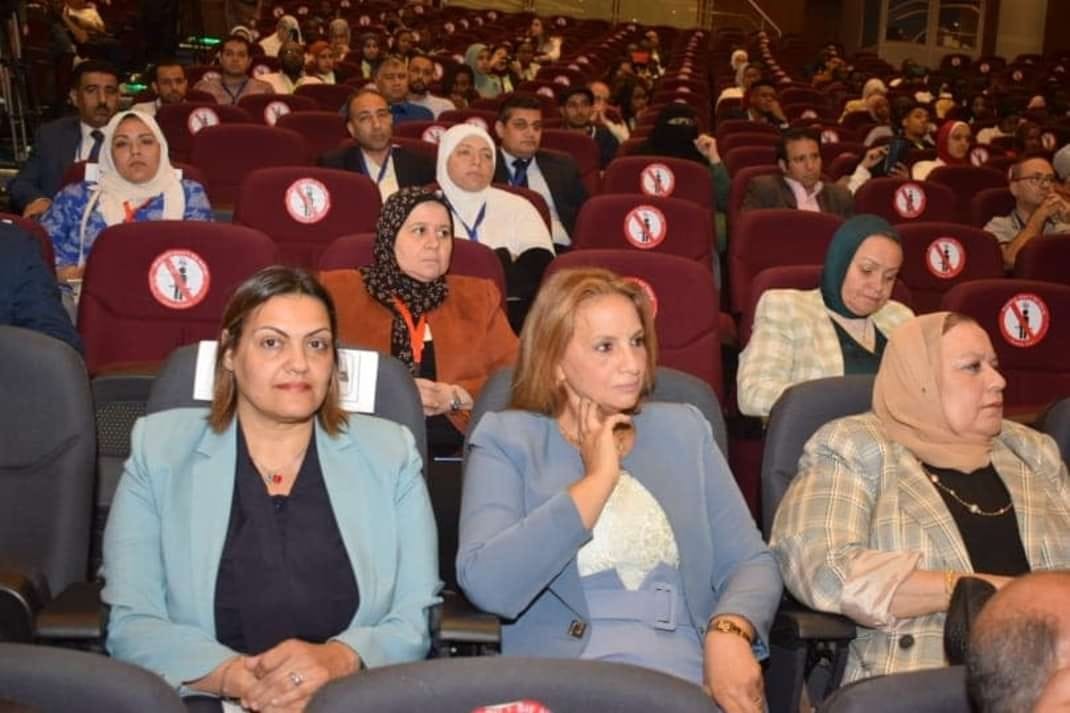 |
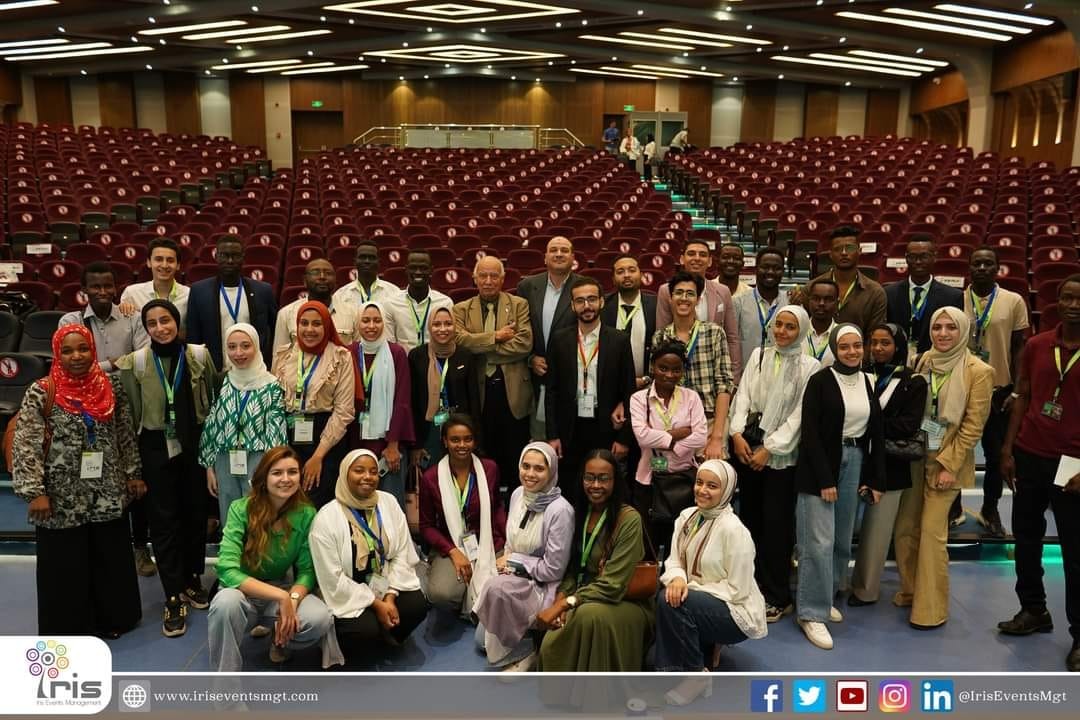 |
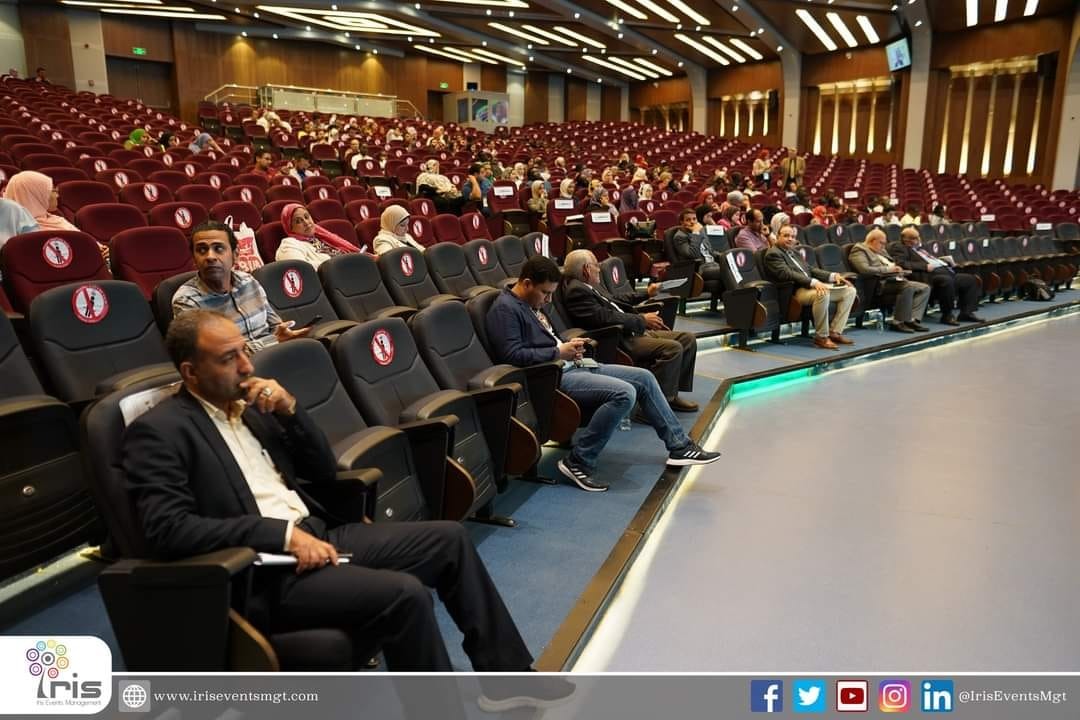 |
||
Prof. Dr. Mahmoud Al-Duwairi - Former Jordanian Minister of Agriculture, President of Ajloun National University, and Director of the Plant Production and Plant Protection Department at the Food and Agriculture Organization.
A cooperation agreement has been signed between the Graduate Institute of Arid Lands Studies and the International Center for Agricultural Research in the Dry Areas (ICARDA) and the International Committee for the Development of Drylands (IDDC), for future cooperation between them in relation to confronting climate change and its impact on the livelihood of people in dry areas. On these agreements, Prof. Dr. Mahmoud El-Matini, President of the University, stated that the university will host this gathering annually to discuss ways to implement the latest scientific data, as well as policies that support agriculture in the countries of the dry areas, which are inhabited by nearly 2.5 billion citizens.
It is worth mentioning that 125 graduate students from different African countries attended and participated in the webinar, who study in Egyptian universities, Cairo, Ain Shams and Alexandria University. Six of them - representing different African regions - gave presentations reflecting the impact of climate change on their regions. This group supports the Ministry of Environment and the Egyptian Scientific Academy and coordinates This work was carried out by Prof. Dr. Salah Suleiman - University of Alexandria, and a number of representatives of Egyptian universities, Ain Shams University (Faculty of Agriculture and Environmental Institute), as well as representatives of the National Research Center and the Academy of Scientific Research participated.
Moreover, there were many attendances varied between Attending physically which mount to 420 attendees and attendance via video conference mounted 517, and via the social media more than 11 thousand.


.svg)

